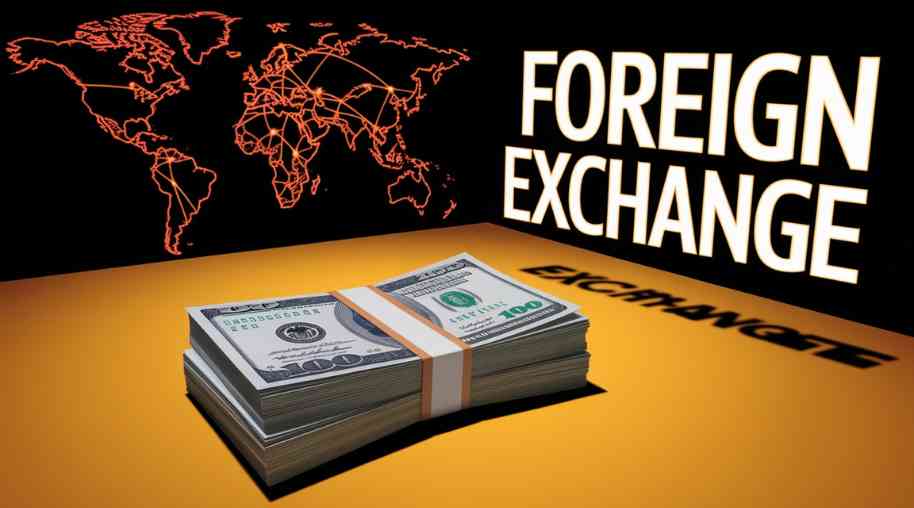FX Full Form-Foreign Exchange
by Shashi Gaherwar
0 2329
Introduction
Foreign Exchange (Forex or FX) is the global system of trading national currencies, forming the largest and most liquid financial market with a daily turnover exceeding $7.5 trillion. It facilitates international trade, investments, and financial stability by enabling currency conversions and determining exchange rates. This article explores the meaning of foreign exchange, its functions, key participants, factors affecting exchange rates, and its impact on the global economy.

What is Foreign Exchange?
Foreign exchange is the process of converting one currency into another for purposes like trade, travel, investment, or economic stability. Exchange rates determine the relative value of currencies, influencing global trade dynamics and monetary policies.
Key Aspects of Foreign Exchange
- Forex Market (FX Market): A decentralized global marketplace for currency trading.
- Exchange Rate: The price of one currency in terms of another.
- Currency Pairs: Transactions involve pairs like EUR/USD, USD/JPY, GBP/USD.
- Foreign Exchange Reserves: Central banks hold reserves to stabilize their currency and economy.
The Forex Market: Structure and Participants
The forex market operates 24/5 through financial centers like London, New York, Tokyo, and Sydney. Key participants include:
- Central Banks: Influence exchange rates via monetary policies and interventions.
- Commercial Banks: Conduct large currency trades for businesses and investors.
- Institutional Investors: Hedge funds, pension funds, and mutual funds trade forex.
- Corporations: Multinational companies manage global operations through forex transactions.
- Retail Traders: Individuals trade via online brokers to profit from exchange rate fluctuations.
How Exchange Rates are Determined
Exchange rates fluctuate due to economic and geopolitical factors. The three main systems are:
- Fixed Exchange Rate: Central banks set a fixed value relative to another currency (e.g., China’s Renminbi (RMB) pegged to USD historically).
- Floating Exchange Rate: Determined by supply and demand (e.g., USD, EUR, JPY).
- Managed Float (Hybrid System): Governments intervene to stabilize fluctuations (e.g., India’s Rupee (INR) policy).
Factors Affecting Foreign Exchange Rates
- Interest Rates: Higher rates attract foreign investments, strengthening the currency.
- Inflation Rates: Lower inflation boosts purchasing power, strengthening currencies.
- Political Stability: Stable governments attract foreign investors.
- Economic Growth: Strong GDP growth enhances investor confidence.
- Trade Balance: A surplus strengthens a currency; a deficit weakens it.
- Speculation: Market sentiment and traders’ expectations drive fluctuations.
Impact of Foreign Exchange on Global Trade and Economy
- International Trade and Investment: Stable forex markets facilitate global trade. Strong currencies enable cheaper imports, while weaker currencies boost export competitiveness.
- Inflation and Purchasing Power: A depreciating currency raises import costs, causing inflation; a strong currency improves purchasing power.
- Economic Growth and Employment: Forex stability attracts foreign direct investments (FDI). Weaker currencies benefit export-driven economies, boosting production and employment.
Foreign Exchange Risk Management
Due to exchange rate fluctuations, businesses and investors use strategies like:
- Hedging: Using forward contracts or options to minimize risk.
- Diversification: Investing in multiple currencies and markets to spread risk.
- Monitoring Economic Indicators: Tracking interest rates, inflation, and government policies.
Foreign exchange is a cornerstone of the global financial system, shaping trade, investment, and economic stability. Understanding the forex market, exchange rate dynamics, and risk management strategies empowers businesses and investors to navigate currency fluctuations effectively.
Further Learning Resources
If you’re passionate about building a successful blogging website, check out this helpful guide at Coding Tag – How to Start a Successful Blog. It offers practical steps and expert tips to kickstart your blogging journey!
For dedicated UPSC exam preparation, we highly recommend visiting www.iasmania.com. It offers well-structured resources, current affairs, and subject-wise notes tailored specifically for aspirants. Start your journey today!

Share:









Comments
Waiting for your comments